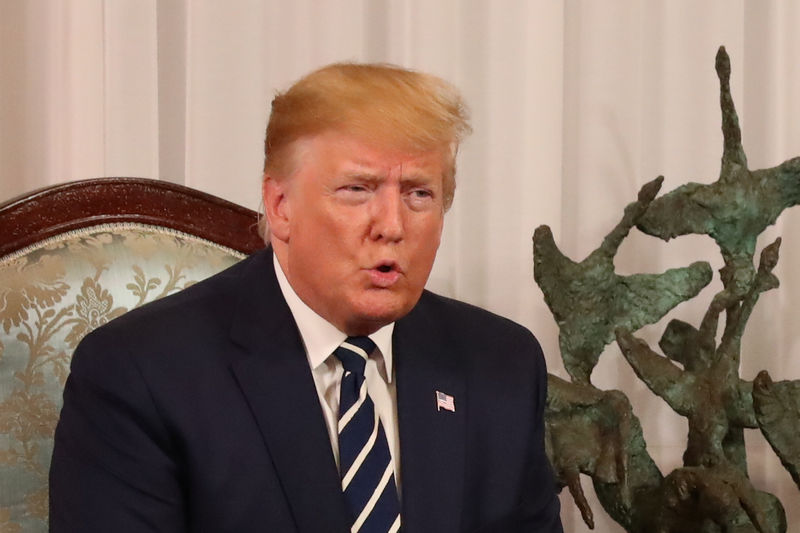WASHINGTON (Reuters) - If President Donald Trump follows through on his threat to impose across-the-board tariffs on Mexican goods entering the United States, the U.S. Congress will likely try to halt the action with legislation that would face formidable hurdles to enactment.
U.S. and Mexican officials met in Washington on Wednesday to try to head off the tariffs, which could be set at 5% of the value of Mexican goods entering the United States and rise eventually to a potentially devastating 25%.
Trump has pledged to use his presidential powers to trigger the tariffs as soon as next week unless Mexico makes progress on slowing the flow of migrants from Central America arriving at the southern U.S. border.
Here is how Congress could act:
WAIT AND SEE
Lawmakers, worried about the economic impact of tariffs against the second largest exporter to the United States, are in a holding pattern. While many are registering their objections directly to Trump or his aides, they also are awaiting word on whether the tariffs will actually be set in place. They also want to know the specific law under which Trump would be retaliating against Mexico, which could have an impact on the timing of legislation.
CRAFT A BILL
A bill to halt the tariffs could be introduced in the Republican-controlled Senate, the Democratic-controlled House of Representatives or both - just like any legislative effort.
Earlier this year, Congress passed legislation to terminate an emergency declaration by Trump so that he could build a wall on the U.S.-Mexico border even though funds were not specifically appropriated by Congress. That effort ultimately failed when Trump vetoed the legislation and the House did not have the votes to overturn the veto.
Much of the debate centered on the constitutional issue of whether Trump had the power to unilaterally spend taxpayer dollars, an activity normally reserved for Congress.
EXPECT A VETO
If legislation to stop the tariffs were to pass the House and Senate, Trump would be nearly certain to veto it. The president's action could be reversed by a "veto override" but that would need the support of two-thirds of the Senate and House.
There could be enough Republicans in each chamber who would stand by Trump and block a veto override, but that is uncertain at this early stage.
RISING REPUBLICAN OPPOSITION
There could be legal challenges to a Trump move on tariffs, but that could depend in part on the avenue the president uses to implement tariffs. Much of the opposition in Congress this time around, however, would be about the prospect of a trade war with Mexico. That kind of escalation could hit the economy immediately, creating an urgent problem that could not wait for court rulings.
Many senators are expressing opposition to the tariffs, including some who supported Trump on his border wall initiative. For example, Senator Ted Cruz said the tariffs would amount to a $30 billion tax increase on people in his home state of Texas.
Lawmakers also fear the tariffs would bring Mexican retaliation.
